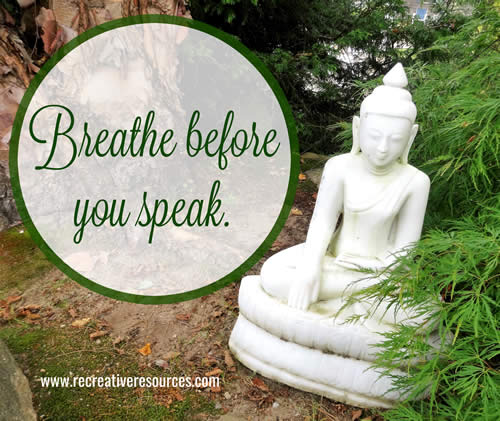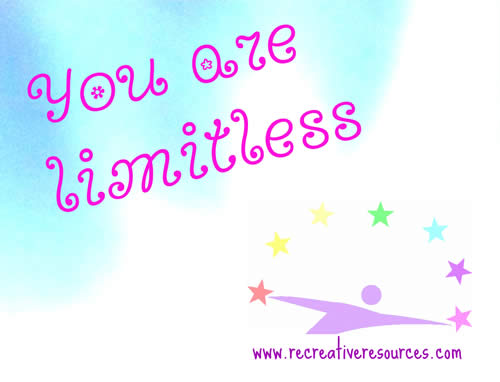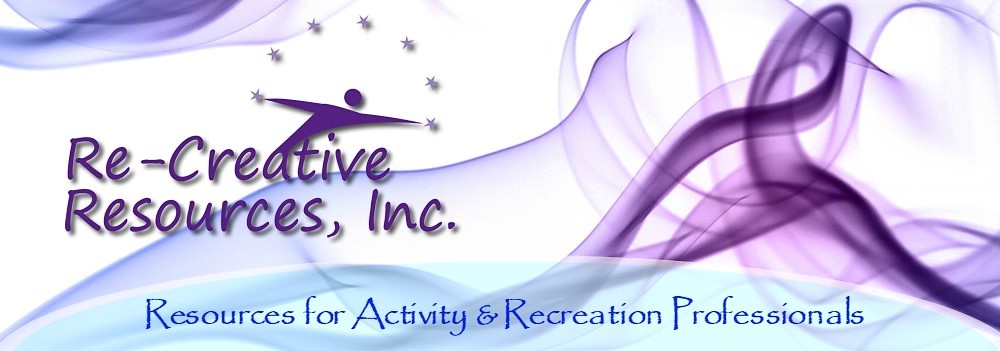 Throughout my career in the field of therapeutic recreation and activities in long-term care, I have encountered many obstacles, one of which has been the challenge of gaining professional respect for the field and the role of recreation and activity professionals. As a former recreation assistant, director, and even at times, as a consultant, there continues to be a need to demonstrate my professional abilities and value. At many seminars, conferences, networking opportunities, and in numerous emails, other therapeutic recreation and activity professionals have expressed this concern and frustration as well. Throughout my career in the field of therapeutic recreation and activities in long-term care, I have encountered many obstacles, one of which has been the challenge of gaining professional respect for the field and the role of recreation and activity professionals. As a former recreation assistant, director, and even at times, as a consultant, there continues to be a need to demonstrate my professional abilities and value. At many seminars, conferences, networking opportunities, and in numerous emails, other therapeutic recreation and activity professionals have expressed this concern and frustration as well.
Years ago I worked in a facility in which a VIP told me that he did not see the full value of recreation within the healthcare system. Needless to say, I was stunned by such an abrupt comment. I thought perhaps this bold statement was made to motivate me to revamp the therapeutic recreation department that I was just hired to manage. So, I accepted the challenge. Several years later, this same VIP approached me and said, “Now I understand the value of therapeutic recreation. You are great at what you do.” Not only did I change the opinion of one VIP, but many throughout the entire corporation, and within the facility itself. How did I do it? In this article I share with you my secrets to success and gaining the professional respect we desire and deserve.
Respect others
 It sounds so simplistic, but if we want to be treated with respect, we first must treat others with respect. Get to know the role of the department heads, and other facility staff. It is important to be aware of the responsibilities of the other healthcare workers so that we can better understand their challenges, goals, qualifications, and so on. We must follow the chain of command, not step on others toes, and speak to others in a respectful manner. There are times we must advocate for the residents and for ourselves, but there is always a time and a place. Choose your battles wisely, and confront others calmly, have all the facts, and be willing to listen to all sides. It sounds so simplistic, but if we want to be treated with respect, we first must treat others with respect. Get to know the role of the department heads, and other facility staff. It is important to be aware of the responsibilities of the other healthcare workers so that we can better understand their challenges, goals, qualifications, and so on. We must follow the chain of command, not step on others toes, and speak to others in a respectful manner. There are times we must advocate for the residents and for ourselves, but there is always a time and a place. Choose your battles wisely, and confront others calmly, have all the facts, and be willing to listen to all sides.
Portray a professional image
Speak, write, act, and dress professionally. Recreation and activity professionals have been branded the “party people”, “bingo callers”, “Miss Mary sunshine” and so on. With these stereotypes it is often easy to lose our professional footing. Although it is our role to be “the fun people”, we still have to portray a professional image. Dress comfortably, but professionally. Keep in mind the appearance and portrayal of the entire department, not just the director. It is really hard to respect someone who wears baggy jeans, sweatshirts and t-shirts to work every day! Every time we interact with facility staff, management, etc. we have an opportunity to portray a professional image. Meetings are a prime time to dazzle others. Present a professional and impressive report at the quarterly QA meeting; utilize clinical dialogue during an IDCP meeting; discuss happenings and successes during the monthly department head meeting, and keep everyone informed during the daily morning meeting. Ensure that all memos, reports and other correspondences are checked for correct grammar and spelling as well.
Become certified
Professional certification is so important not only for your own professional respect, but for the entire profession. There are various certifications available these days, with ADC and CTRS being the most prominent in our field. If you are already certified, consider another certification. You can become certified in just about anything these days, such as validation therapy, horticultural therapy, remotivation therapy, aroma therapy, laughter therapy and much more. Secondary certifications only add to your value! Consider having other members of the department become certified as well.
Join professional organizations
Being an active member of a therapeutic recreation or activity professional organization portrays that you are involved, serious, and supportive of the profession. Whether local, state or national, these organizations help keep you informed and provide networking and educational opportunities.
Educate yourself
Knowledge is everything! The more you know, the more confidence you will have, the greater your clinical skills and abilities will be, and in turn, you will have increased professional dialogue. This is a sure fire way to gain respect from one co-worker at a time! Take a class on-line, attend the MEPAP course, register for several on-line newsletters (read them!), subscribe to professional magazines, read books, and so on. Use the information that you have learned during conversations, report writing and meetings. Let co-workers and supervisors know that you are taking a class or reading book. They will be impressed! In addition, inquiring minds want to know, so don’t be afraid to ask questions. You can learn a great deal from asking questions at IDCP meetings, and regular numerous Q and A sessions with supervisors and managers.
Educate others
Talk to anyone and everyone about the role of and the benefits of therapeutic recreation and activities. Consider everyone a target to listen to your pitch. Co-workers, department heads, supervisors, corporate VIP’s, family members, residents, volunteers, etc. may all benefit from your knowledge and expertise. Remember to educate the recreation staff and facility staff as well. Consider including the recreation department as part of the facility orientation program and mandatory in-services for all staff. Get involved in the facility education day or a health fair. Another great idea is to host a Recreation Fair, setting up a variety of booths with prizes, demos and educational displays. Such booths may include: physical activities, creative activities, sensory stimulation, cognitive games and so on. Whatever you do, incorporate hands-on experiences and fun.
Promote the department
Although it can be very time consuming, continuous promotional strategies help in your quest for respect. Activity calendars, newsletters, flyers, brochures, displays, bulletin boards, and photo albums are just a few ways in which recreation directors can promote and advertise. Ensure that all calendars, newsletters and other promotional displays are attractive and purposeful. Many brochures, flyers, banners, etc. can easily be done by the recreation staff with appropriate computer software, and equipment, however, it is often recommended that the large calendars and newsletters be professionally printed. Department brochures or booklets are also a great way to promote the department. Often times, recreation professionals have little input into how the department is portrayed in marketing materials, so be sure to work closely with the marketing or public relations department for newspaper opportunities, local cable TV, radio, the facility brochure, facility DVD, website, etc.
Be a team player
There is great focus on an interdisciplinary approach to quality of life. We all must learn to work together, often outside of the realm of our department. Recreation departments are known to be fantastic team players and often times the dumping ground, so remember to ensure that you are in fact being a team player, not merely doing someone else’s job. Some great team player ideas include: special feeding programs, fall prevention programs, assisting with public relations, working in conjunction with the therapy department doing a wheelchair Olympics or walk-n-wheel-a-thon, health fairs, assisting with snacks and hydration, and so on.
Have confidence/be proud
Many recreation professionals do not know how to define what they do or why they do it. A critical component to gaining respect of others is respecting oneself and being proud of the recreation profession. Have confidence that the profession is worthy and an integral aspect of healthcare and quality of life. Talk about the profession in a positive manner and don’t be afraid to speak out.
In conclusion
The therapeutic recreation and activity profession has evolved tremendously over the years. Standards, regulations, qualifications and expectations have become more stringent; however, many recreation and activity professionals still feel they lack professional respect. By making some changes within ourselves and our departments, we can gain the respect we are looking for, one person at a time!

|







